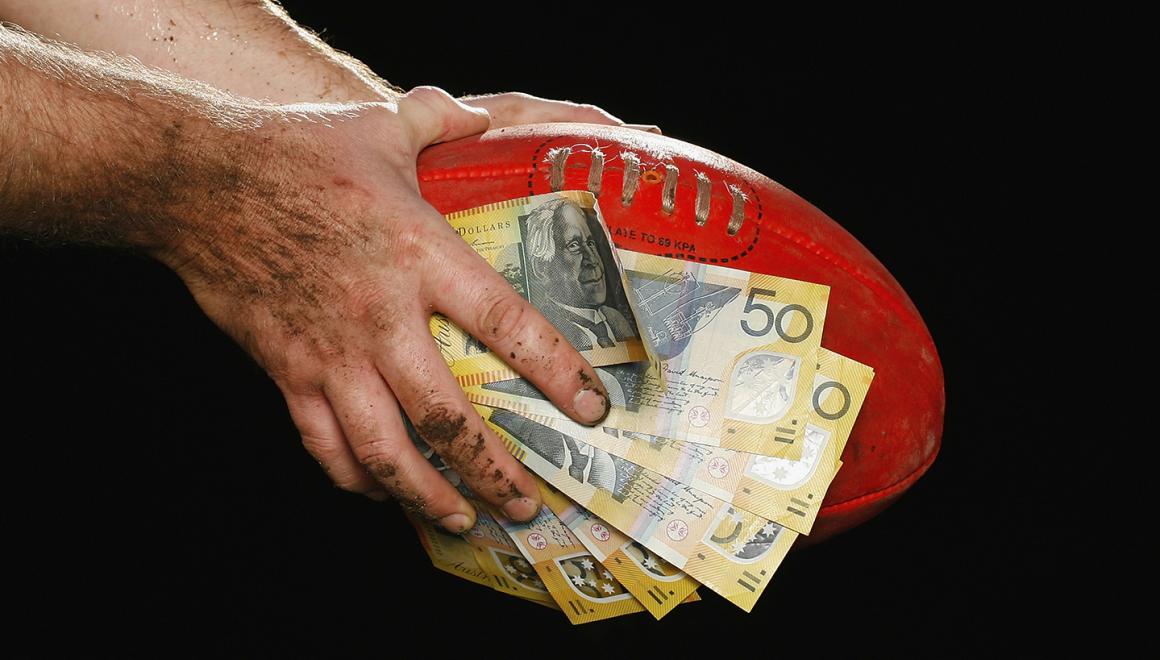Sports betting companies are competing for the Australian betting dollar, which by some estimates surpassed $20 billion last year. Prime time television commercials, social media buys, website pop-ups, and radio adverts make it nearly impossible to go about a normal day without being bombarded by a promise of some kind of inducement or reward for gambling. According to a report in the Sydney Morning Herald the ‘over the top’ deluge has the attention of the NSW Office of Liquor Gaming and Racing (OLGR).
A spokeperson for the OLGR told the Herald that they became aware of some of the ads via a monitoring program. “OLGR has advised (one) company that its promotion is suspected of being in breach of NSW’s Racing Administration Regulation 2012 by offering inducements to gamble and failing to exclude NSW residents,” the spokesman said. “The company will be provided with an opportunity to respond prior to a final decision on regulatory action being taken.”
As reported earlier this month, Former NSW premier Barry O’Farrell has been tasked with leading a review of Australia’s Interactive Gambling Act which was passed into law in 2001. The law is considered antiquated by many observers. The review is due to be tendered before years end and could result in legislative changes in 2016. One of the issues to be examined is the use of in-play betting, which is currently allowed by telephone or in person after an event has begun. Some online companies are claiming that as long as a punter keeps their microphone activated, online in-play bets are in accord with the law.
Many of the international online venues accepting sports bets from Australians also offer casino, poker, and bingo games while others choose to not offer a sports book to their Aussie customers. Although punters currently have no legal restrictions placed on them in regards to online betting, some companies are looking forward to Mr. O’Farrell’s report to help guide policy in the coming years and decades.
However, gambling reform advocate and independent MP Andrew Wilkie doesn’t seem to expect much reform to come from the December report, telling the SMH, “The current government inquiry into online gambling, including sports betting, is a sham seeing as three of the four terms of reference are only to do with protecting Australian online gambling businesses from their overseas competitors.”
According to a discussion paper from the Australian Gambling Research Center dated November 2014, sports betting is the only form of gambling that has seen an increase in Australian participants over the last ten years. The paper notes that the growth has occured along with “extensive promotion of sports betting during live and televised sport,” in addition to promotions found on the internet, social media, and mobile platforms. The report goes on to say that online gambling is partially responsible for the growth of sports betting, and that half of all such activity is now taking place online. The growth is further attributed to commercial arrangements between bookmakers and sports entities (stadiums, clubs, events, etc.) especially the National Rugby League and Australian Football League.
Citing Ebiquity (2012) the publication goes on to say that in 2012 more than 3,000 individual advertisements for sports betting were presented over all media (excluding social media) and those incidences included some 528 adverts that were shown more than 20,000 times over free-to-air TV. The reference notes that the value of advertising for sports betting increased four-fold from 2010 to 2012.
The study was authored by Nerilee Hing with financial support from the Queensland Department of Justice and Attorney-General, and concludes its section on the Impacts of sports betting advertising with, “Research into the effects of sports-embedded gambling promotions is in its infancy. Early research suggests that it is increasing gambling participation, gambling problems and the normalisation of gambling among adults, adolescents and children.”
With the current regulatory attention being paid to huge international companies and homegrown Australian sports betting sites’ advertising and the notable lack of it by others, it’s interesting to note that an Australian Wagering Council spokesperson draws attention to a more recent study by Gambling Research Australia – which allows that a causal relationship between a general exposure to gambling advertising and problem gambling cannot be determined.



